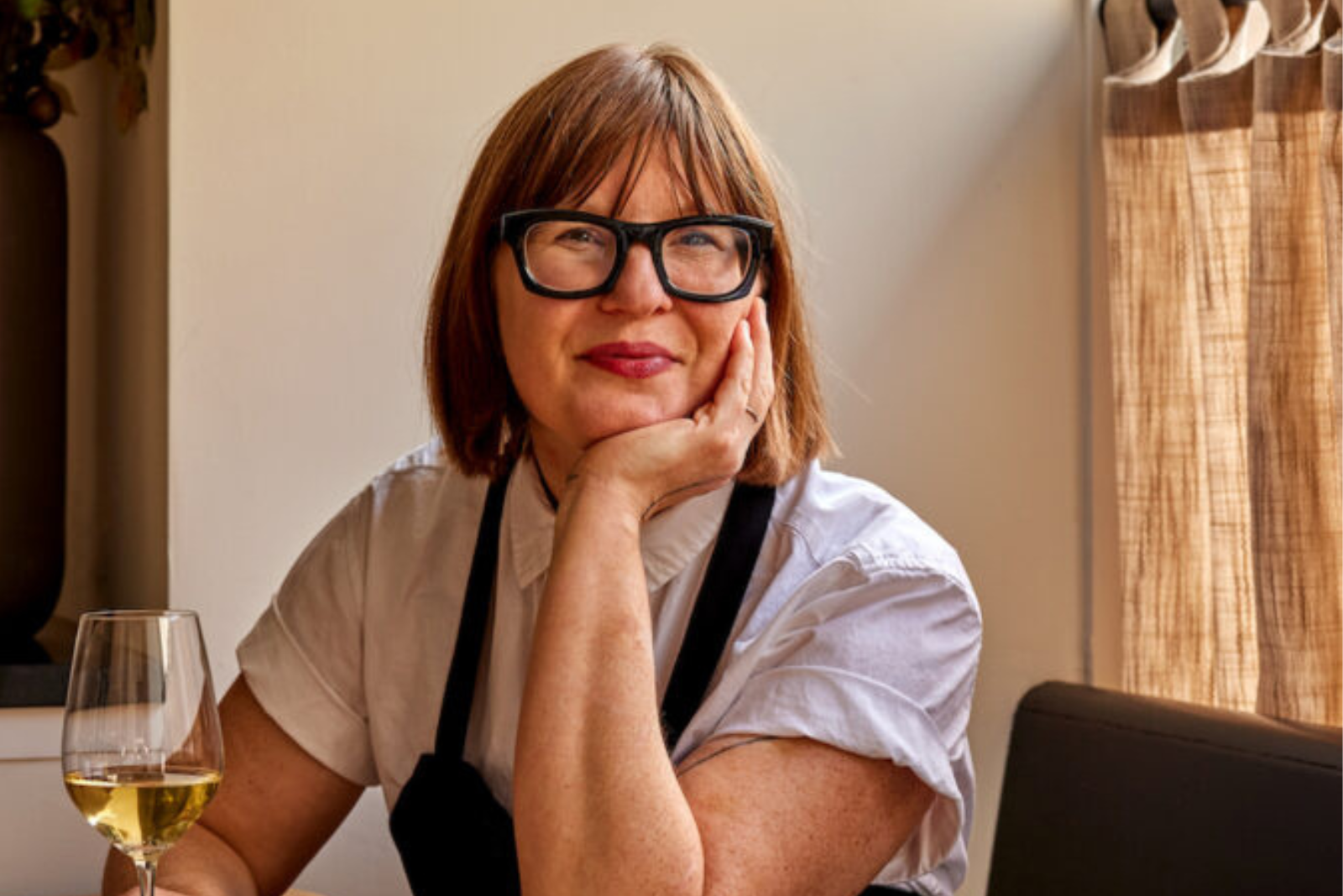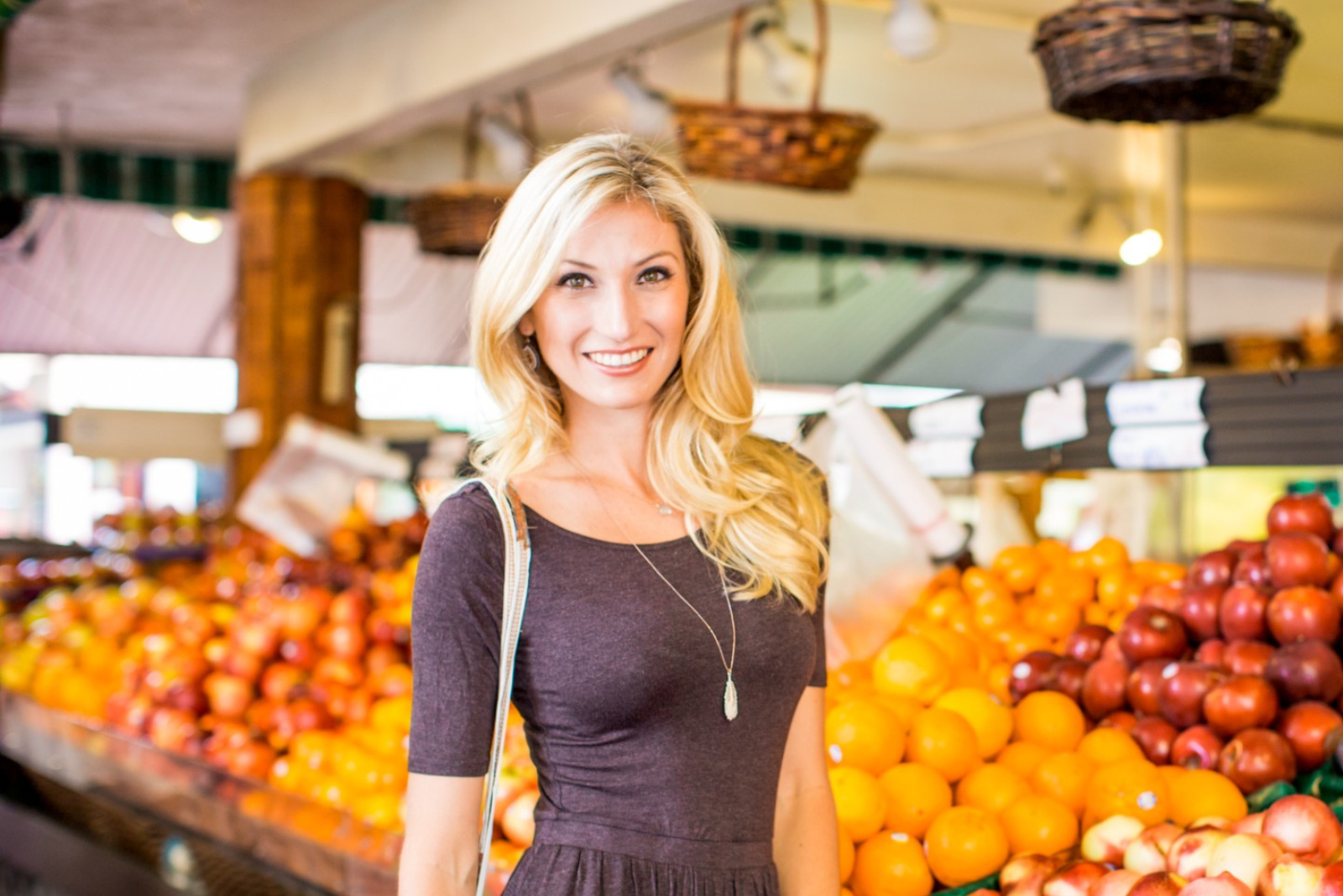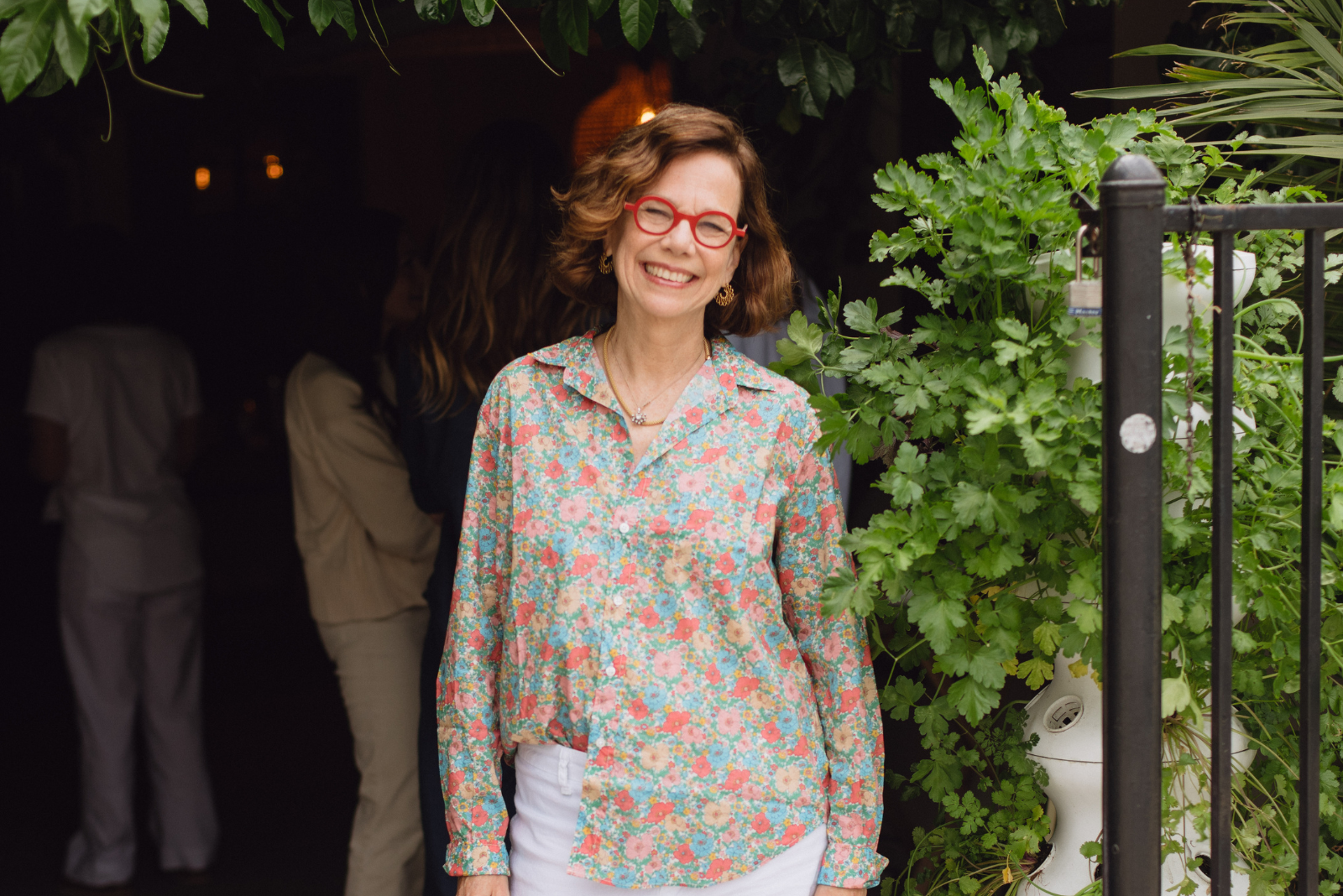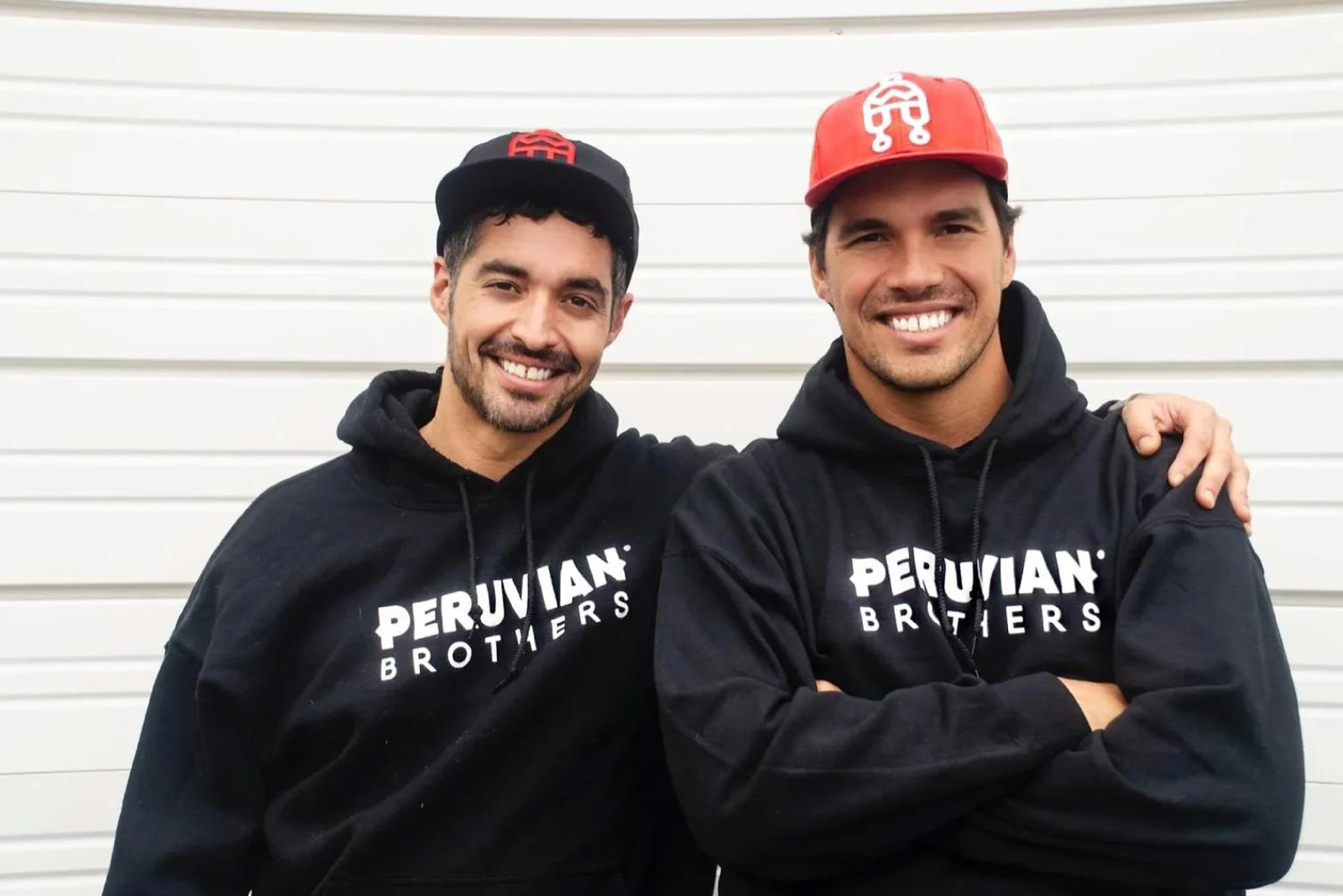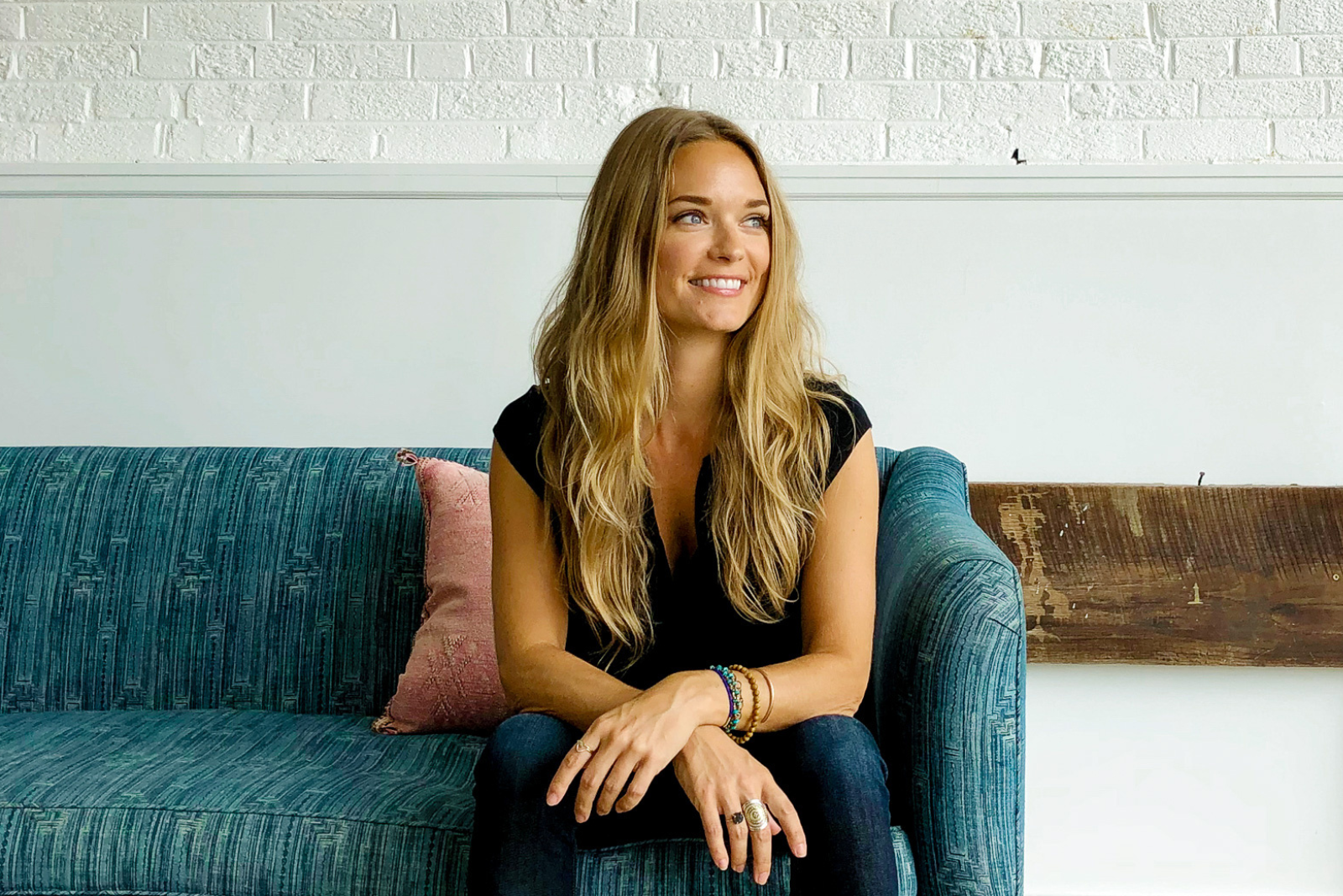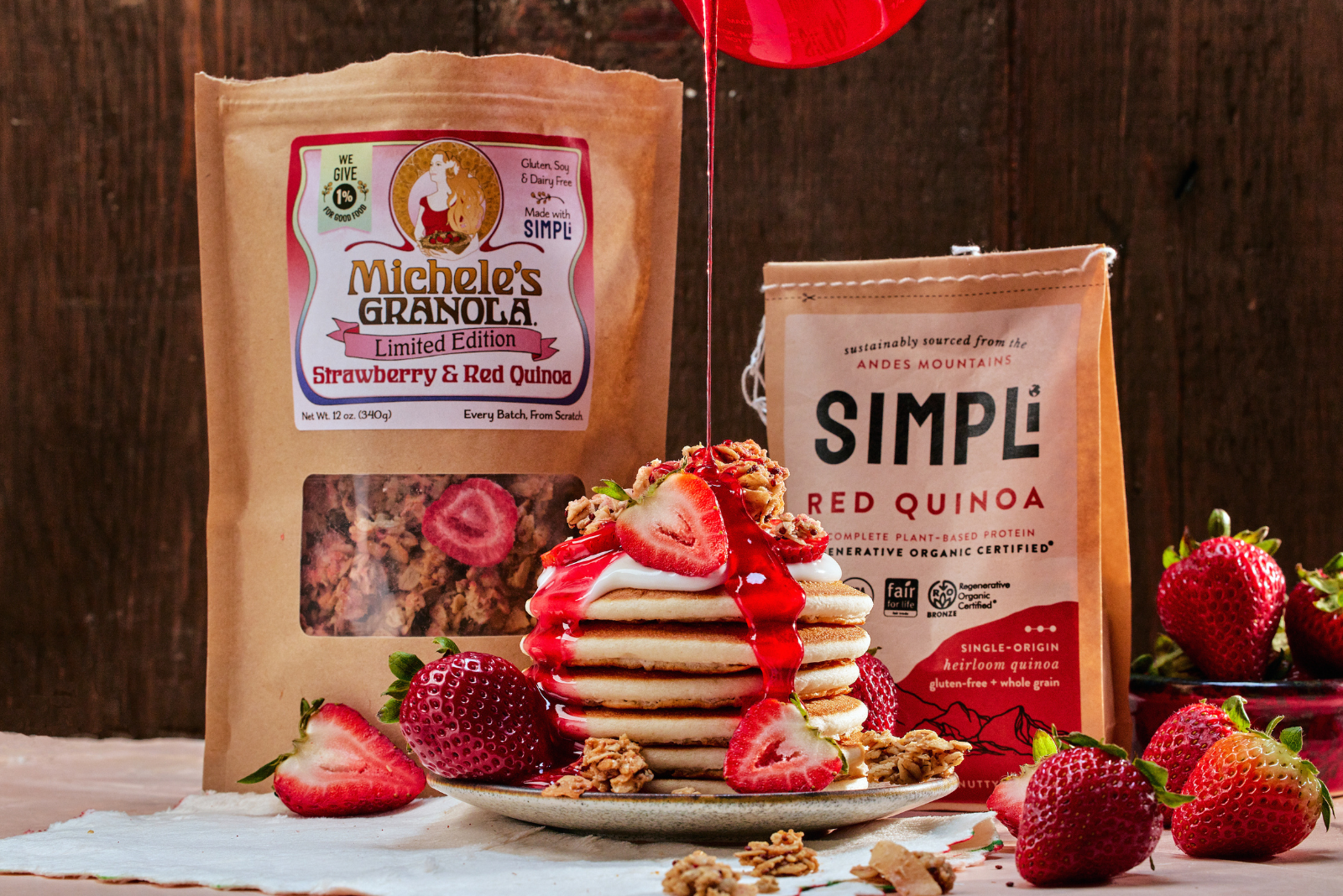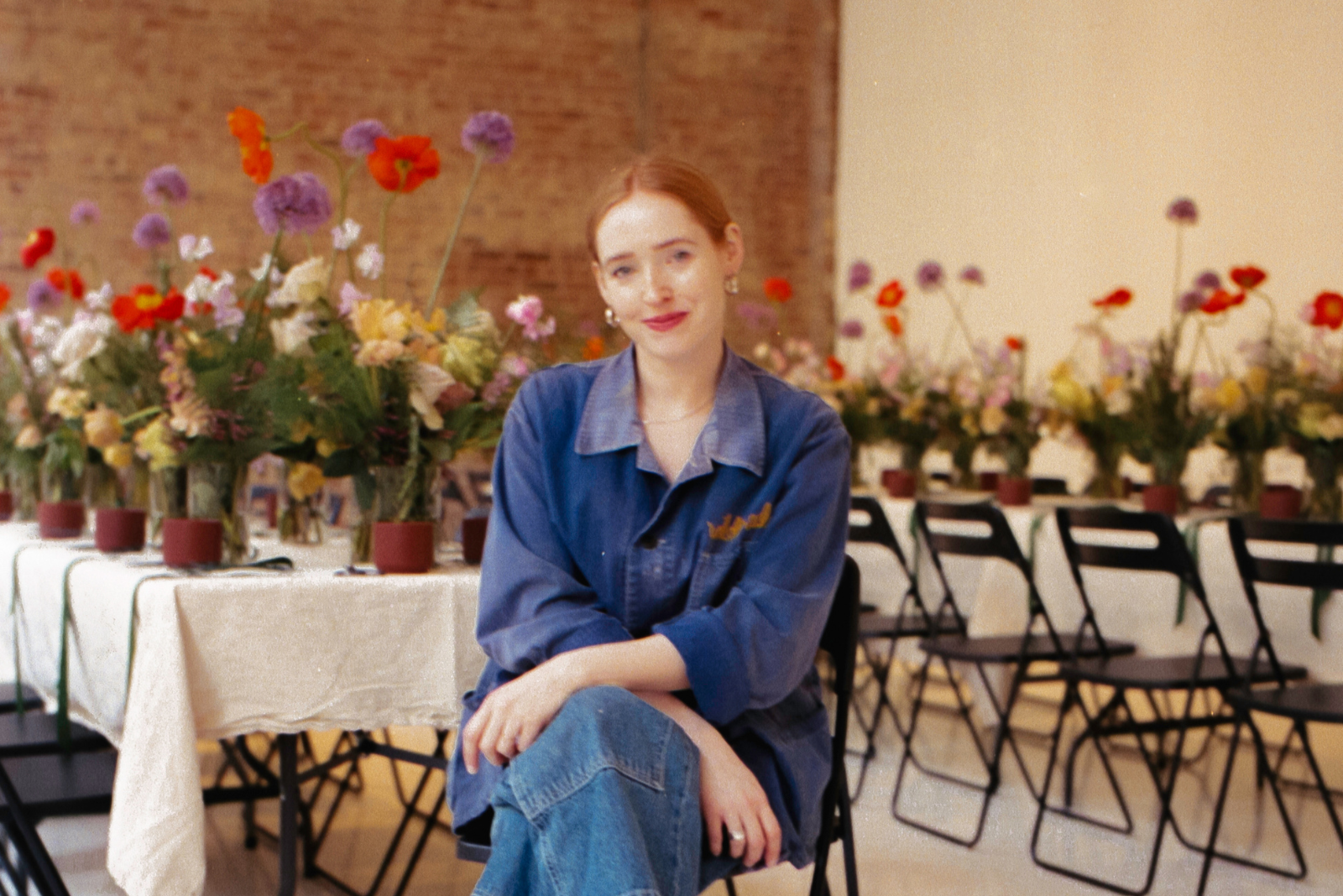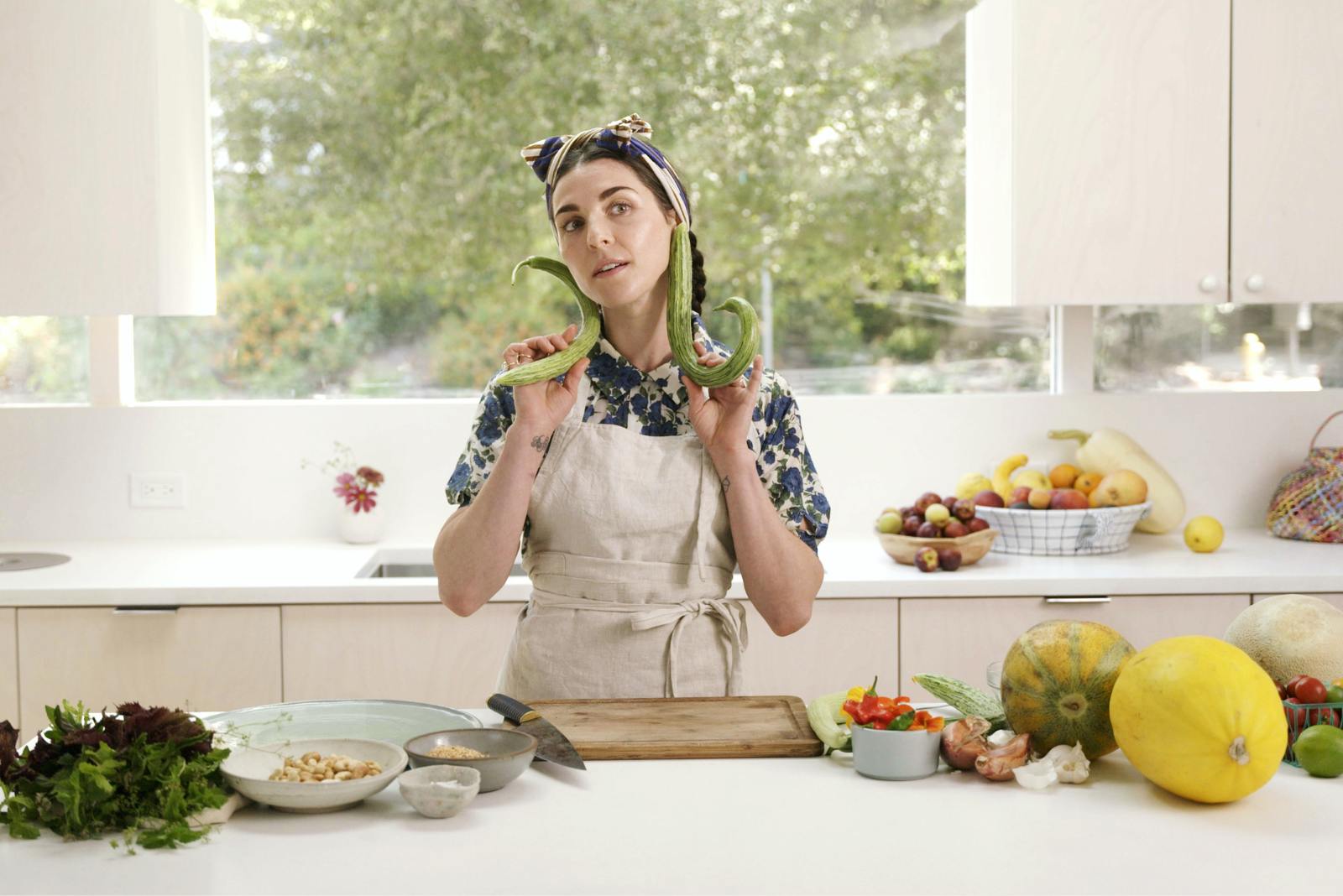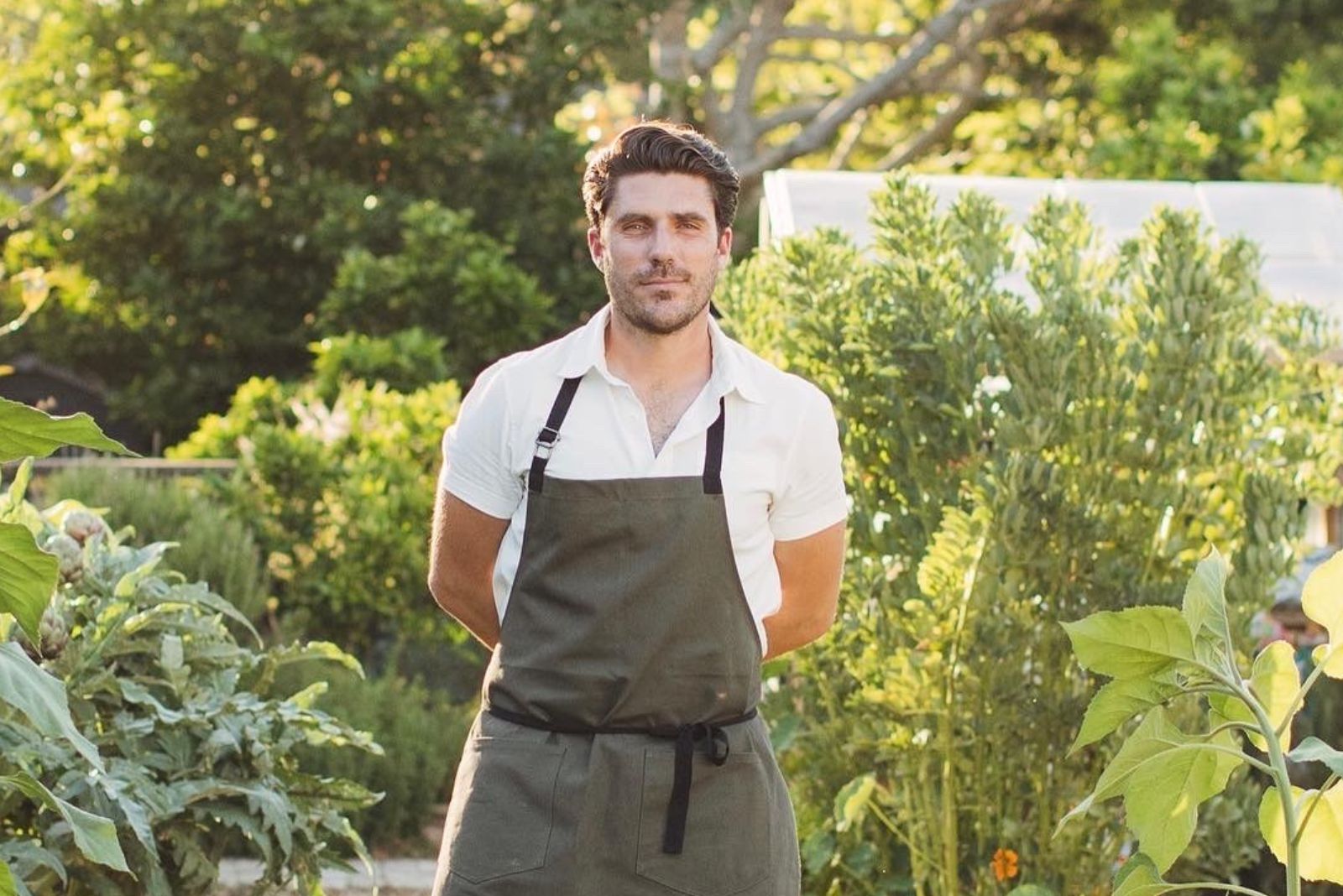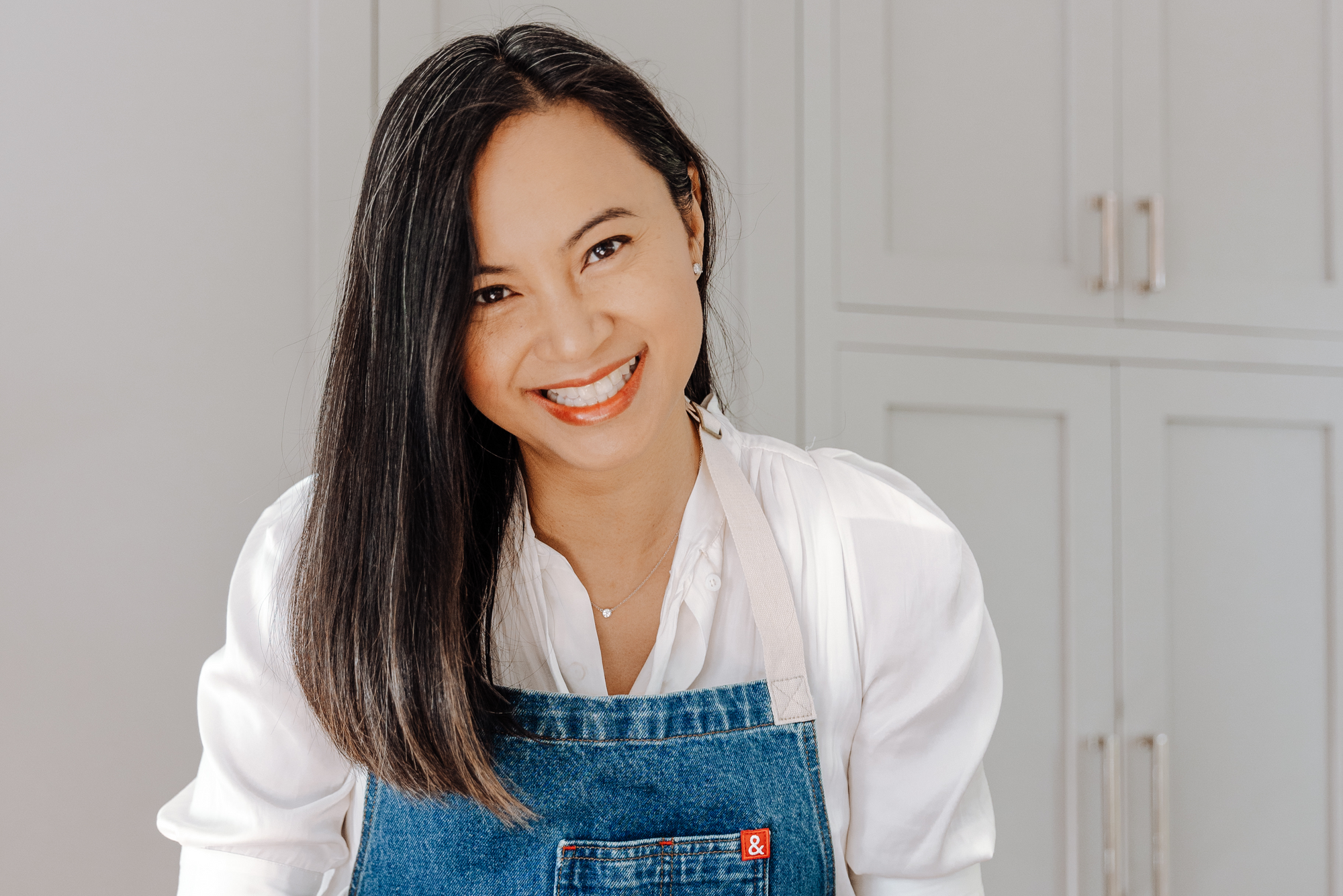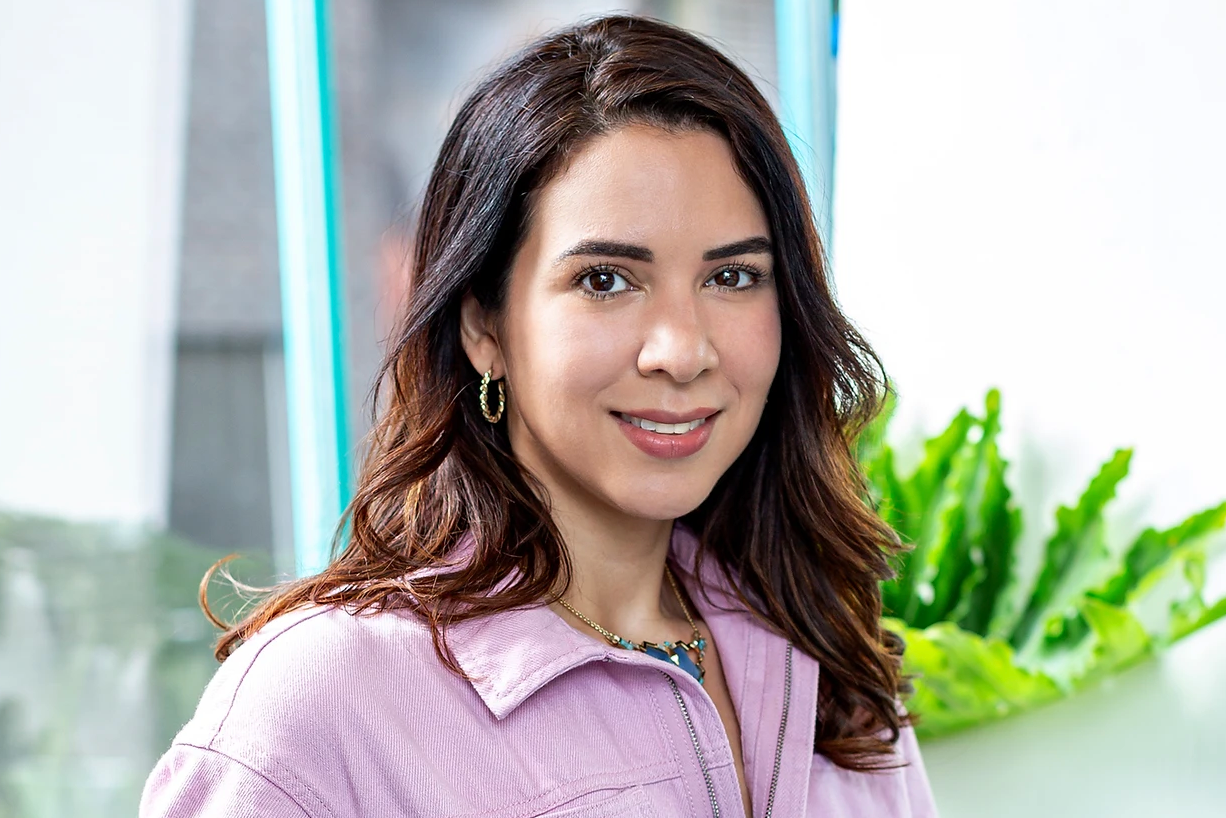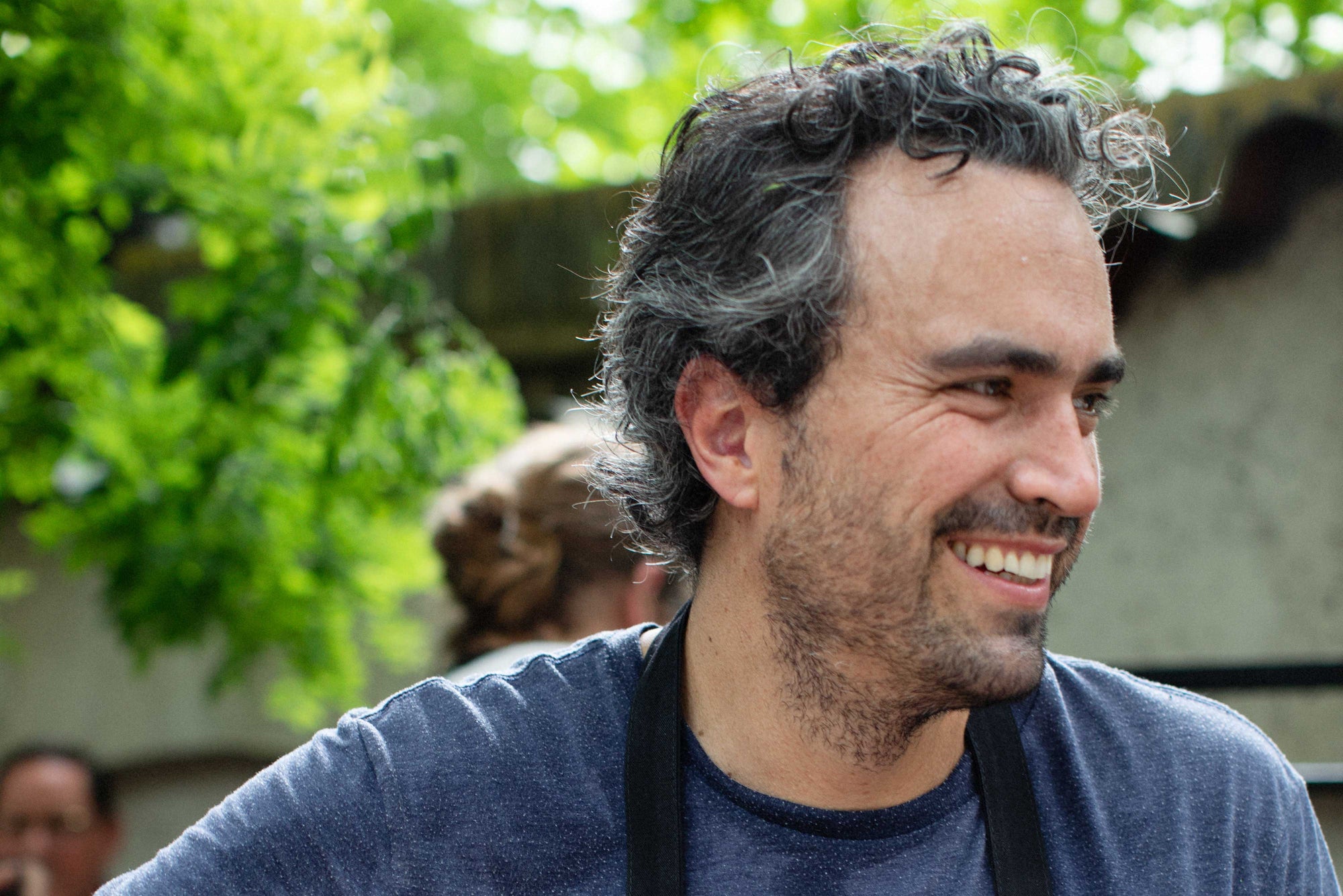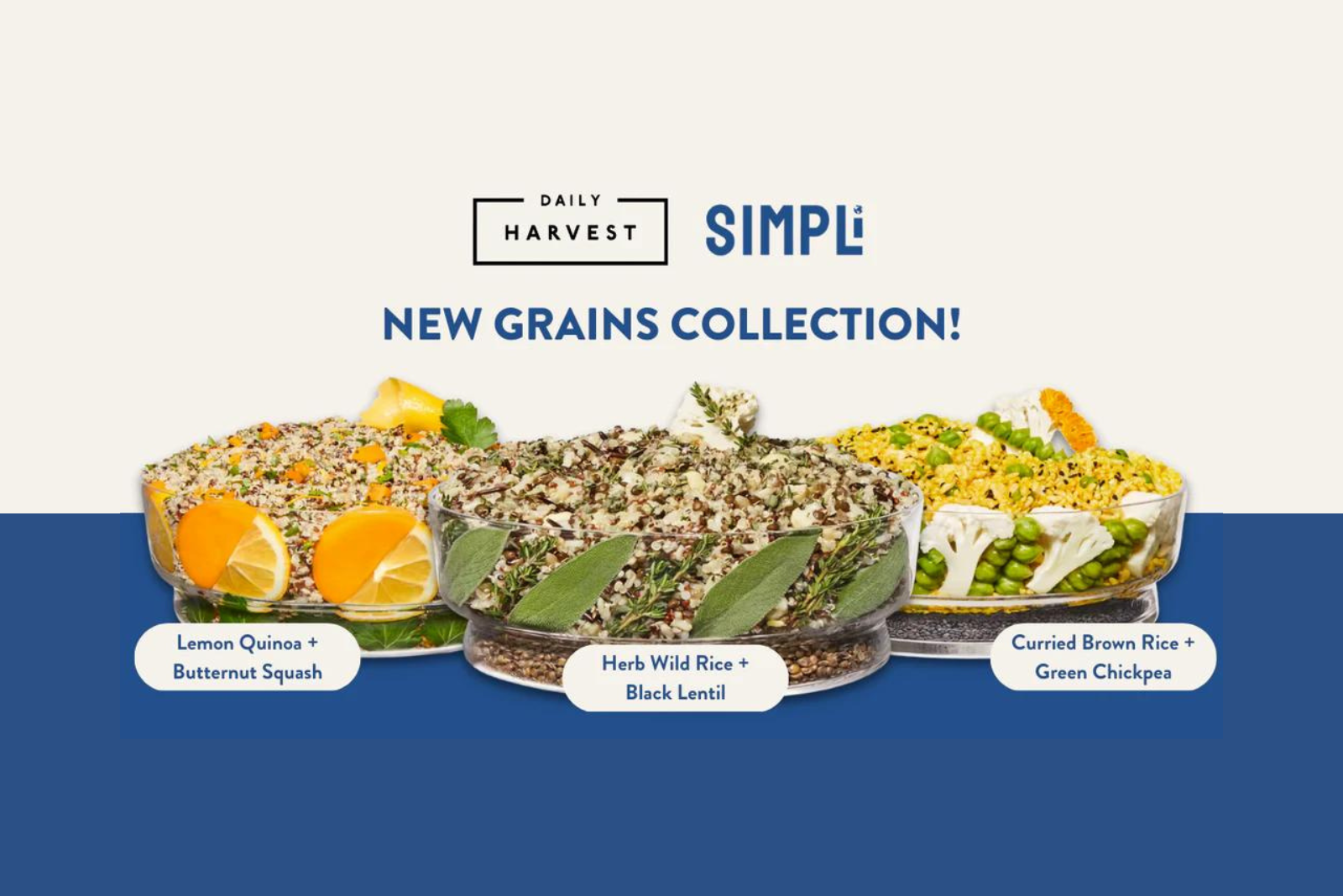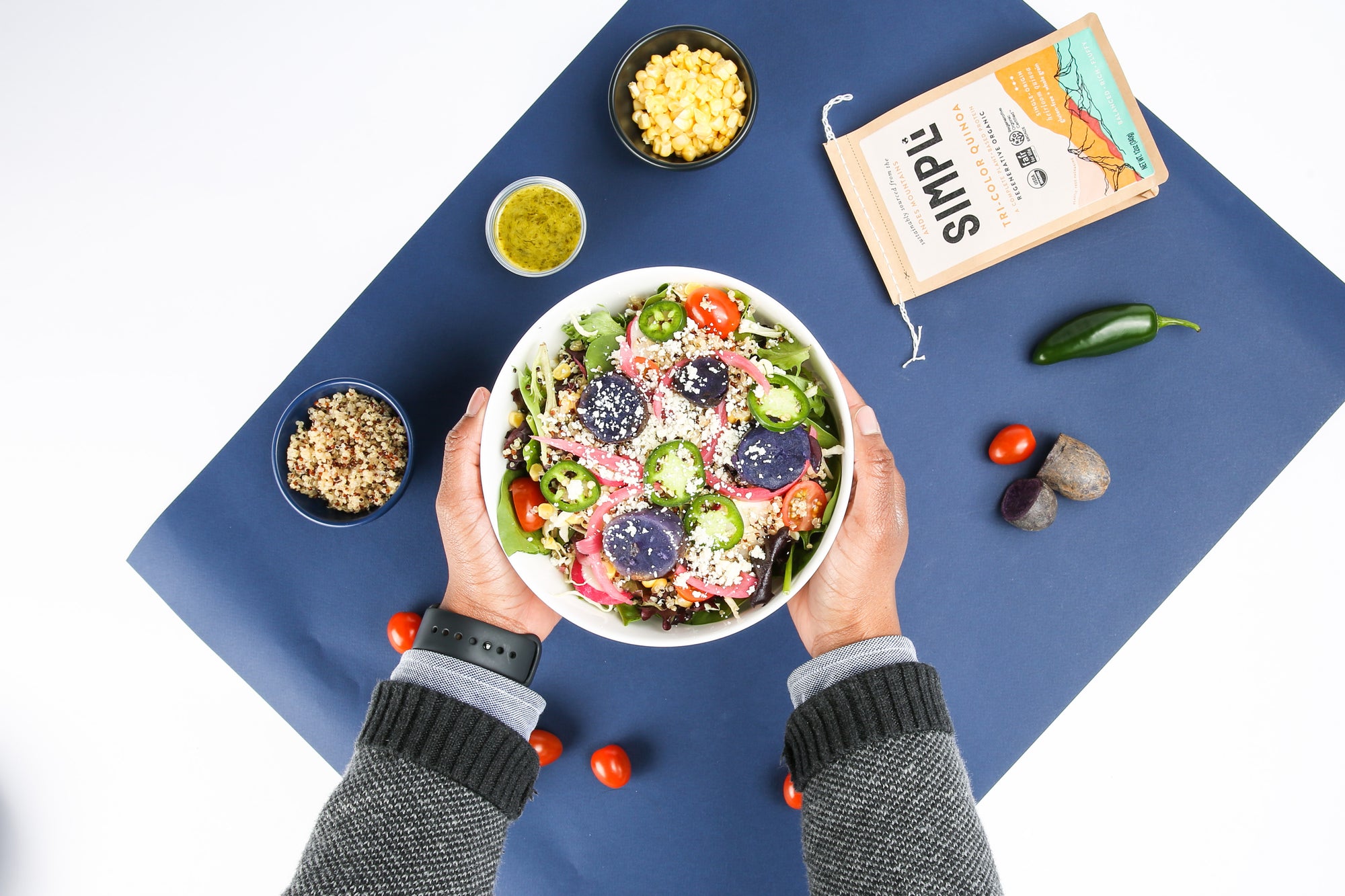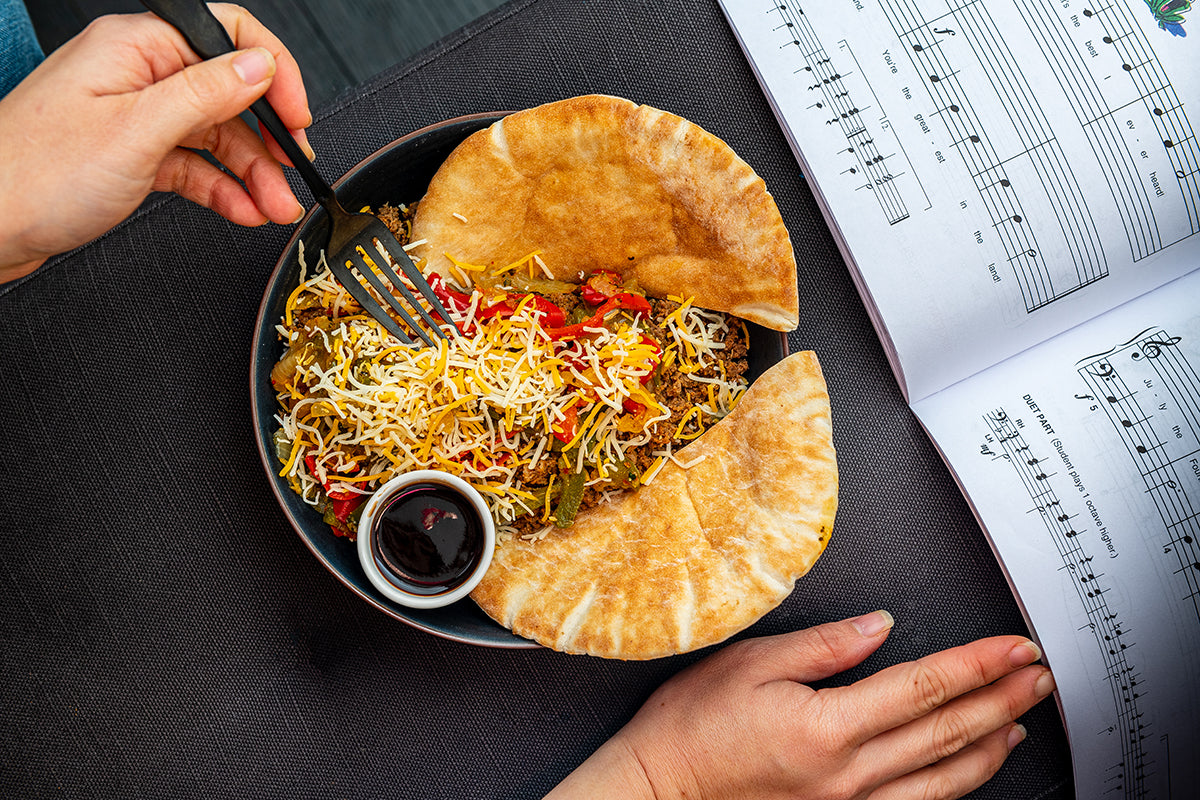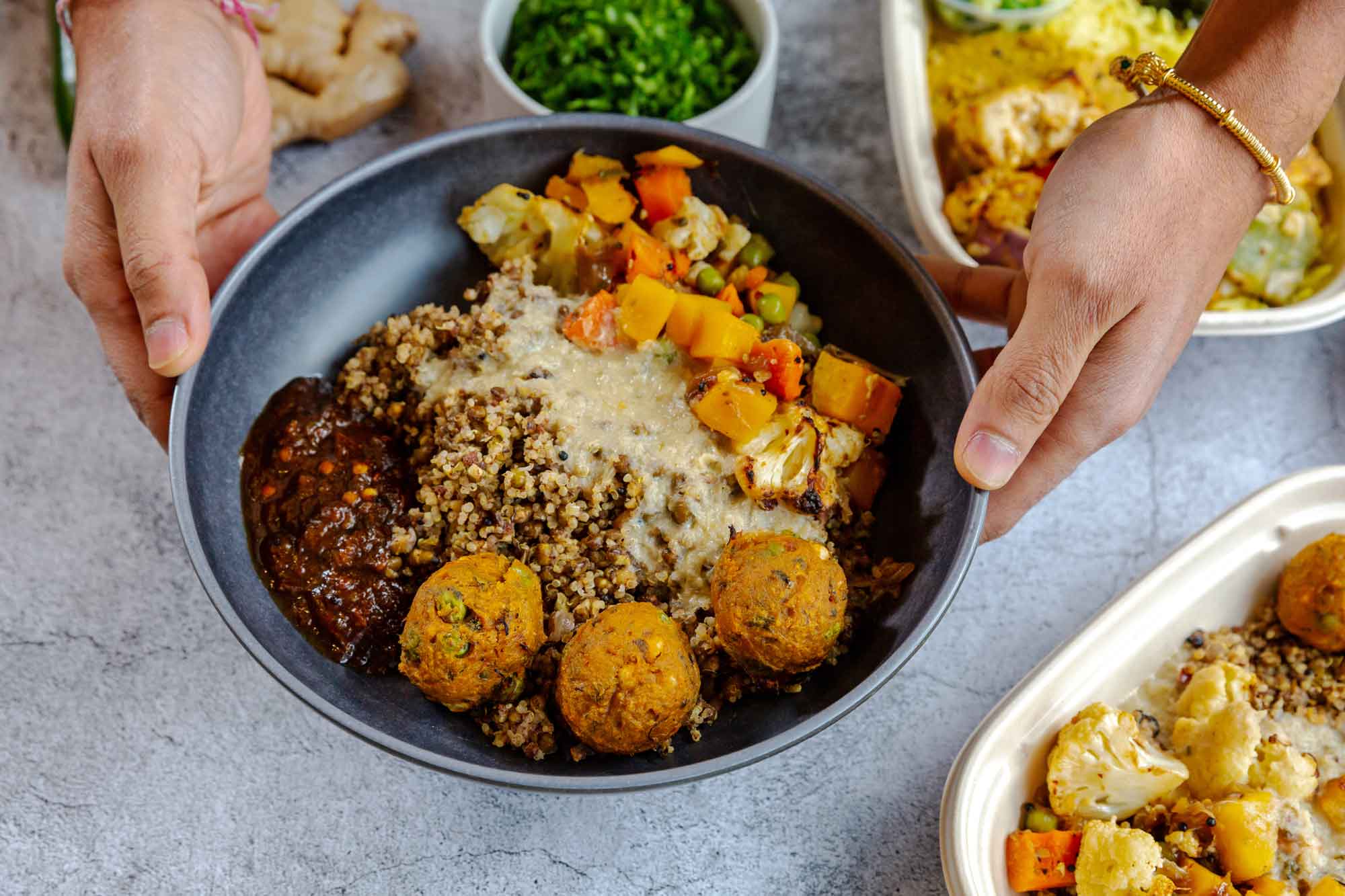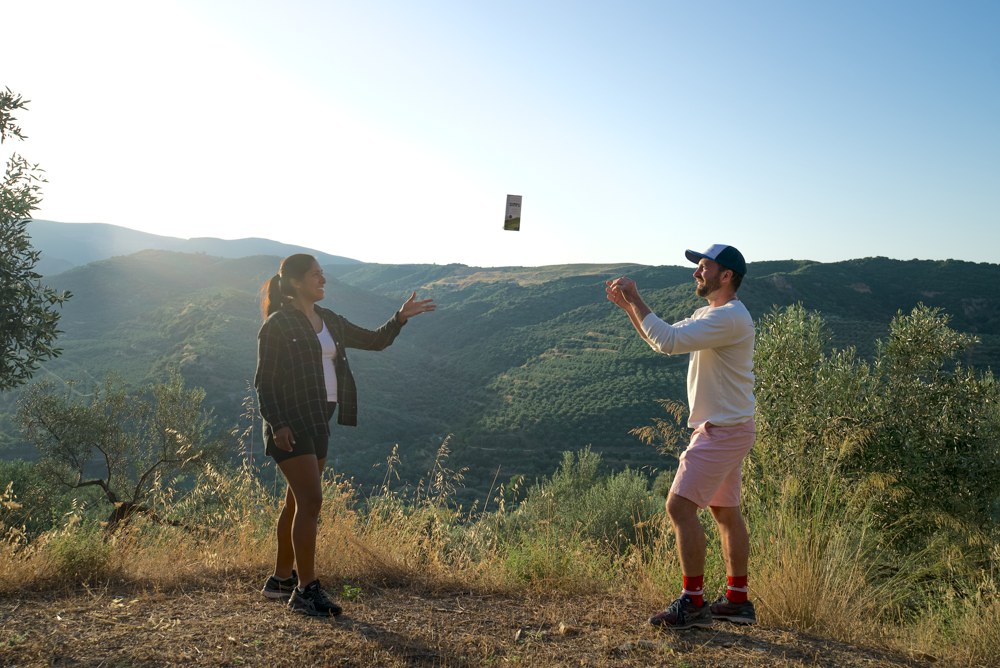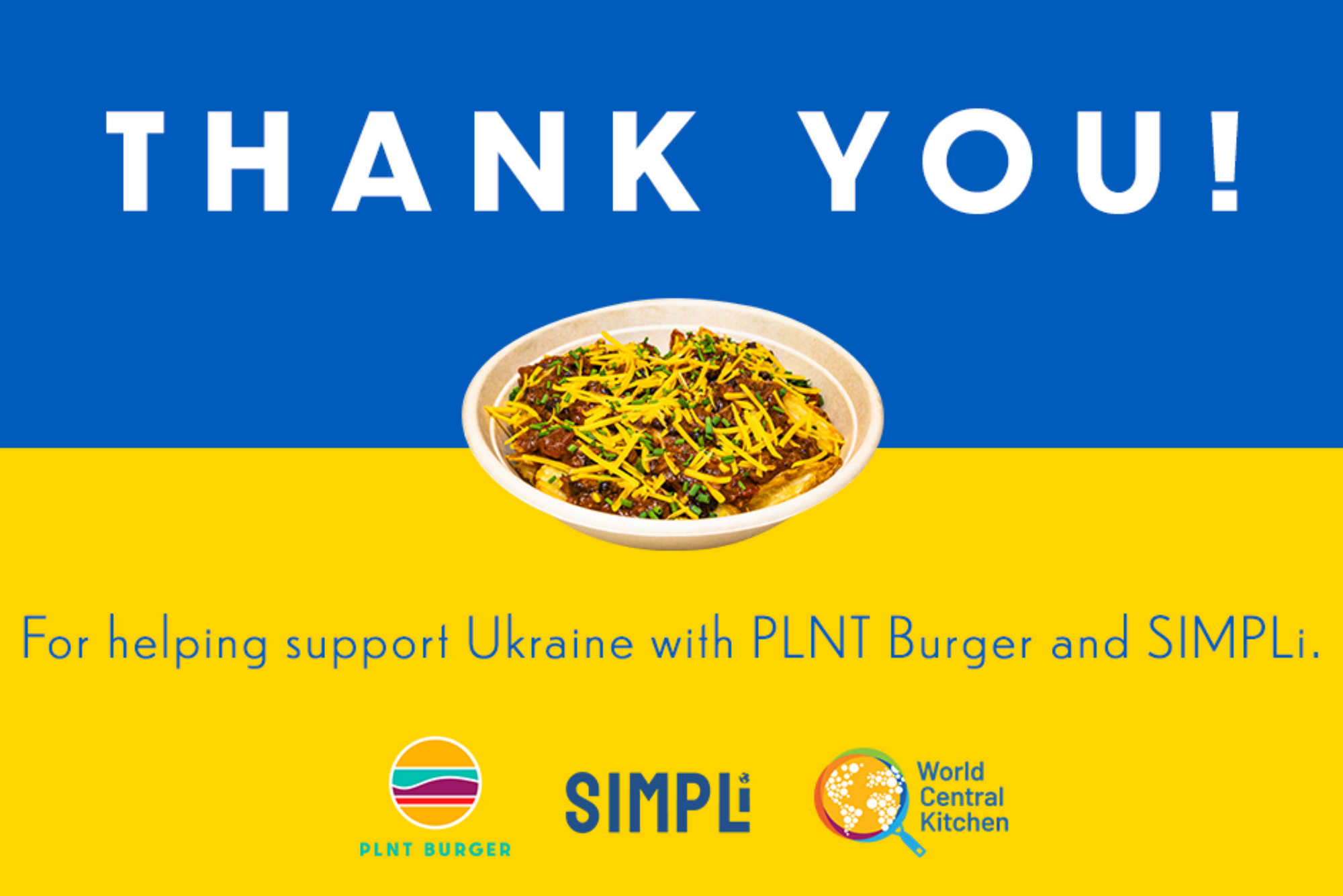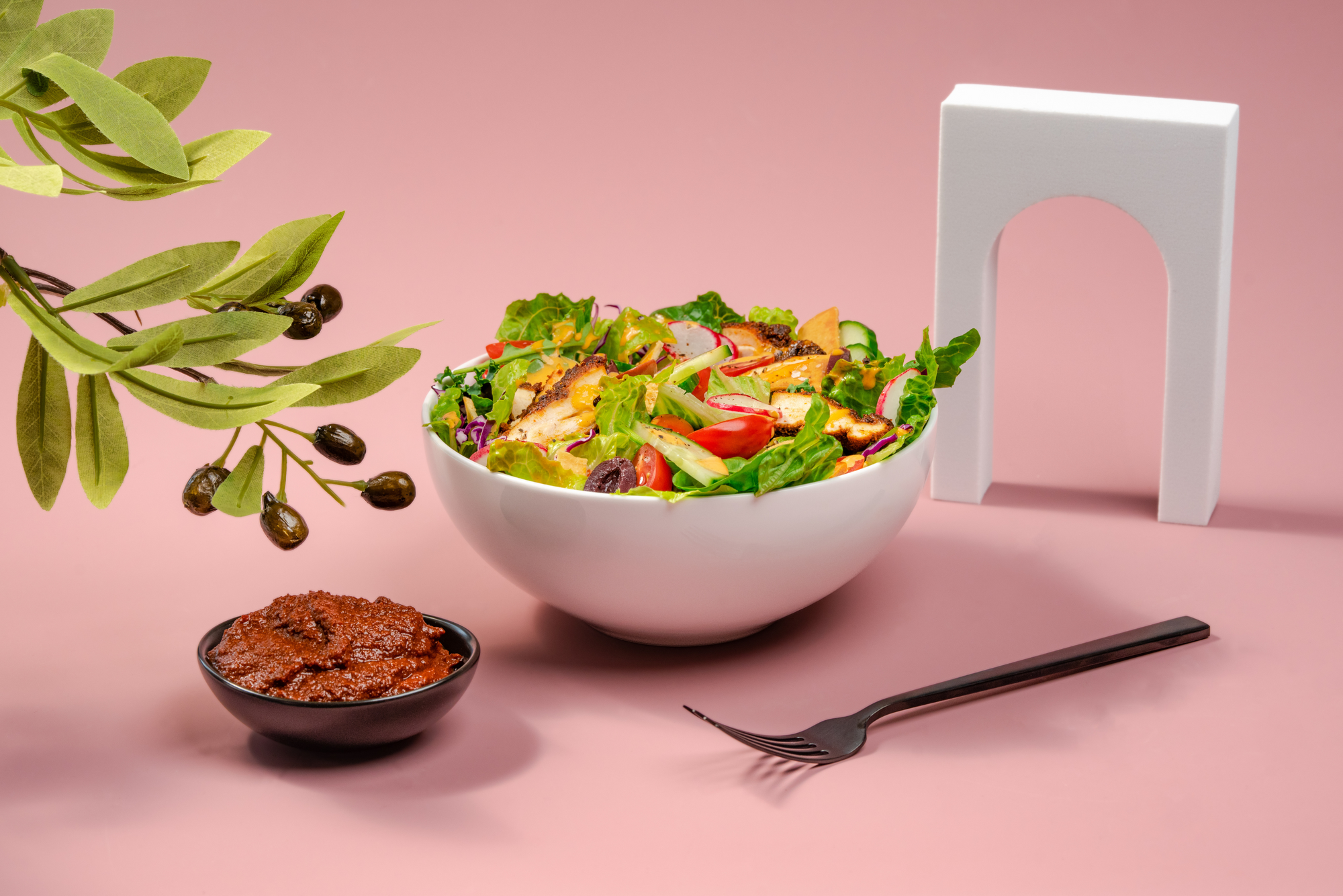In continuation of our Culinary Tastemaker Series, we are incredibly excited to spotlight renowned chef, filmmaker, and food advocate Oliver English. Co-founder and CEO of production and hospitality company Common Table Creative, Oliver works to amplify the regenerative movement and the need for more nutritious, robust food systems through honest, impactful storytelling and films. His new film, Feeding Tomorrow, just came out on Apple TV & Amazon Prime.
We loved having the chance to sit down with Oliver and learn more about his culinary journey and passion for regenerative agriculture and how they’ve shaped his experience with our food systems, our environment, and of course – food itself!
We also teamed up with Oliver to develop a quick and easy, delicious recipe that is full of flavor and fiber, and supports the fight against climate change: Chickpea Tacos with Green Tahini and Salsa Fresca.
Now let’s dive into the conversation!
Can you share a bit about your background and how it has influenced your culinary journey?
I grew up in the restaurant business and have worked most jobs in the business over the years. My parents are also chefs, along with my sister, so cooking was always a big part of our lives growing up. And it was the restaurant business, somewhat ironically, that brought me face to face with how broken the food system is. It was through the lens of the restaurant business that I started meeting with farmers and was so inspired by their passion and love for food that I started making films about them. And it was meeting all of these farmers and others working to change our food system like nutritionists and climate scientists - that inspired me to get back to the kitchen - with a new focus on health and regeneration.
You’ve had the amazing opportunity to open restaurants all around the world and experience different cultures and cuisines. Is there a region you’ve visited whose cuisine you particularly fell in love with?
Italy and Europe are the obvious choices, but I also find the Middle East fascinating. I had the opportunity to live in Abu Dhabi to open a restaurant and also work on projects in Dubai. Culturally it was so different than anything I had experienced growing up. But - and this is particularly true for the Emirates - you get this cross-cultural influx of people from the region, Europe, Asia, Africa, and Central America. In this kind of environment, you really get a sense of the global melting pot - people, cultures, and cuisines.
Do you have a favorite recipe or food memory?
Many of my favorite food memories are from growing up and visiting my grandma's house in Camden, Maine. Although we moved a few houses growing up, our Noma’s house was always the constant and a place that we would always cook together as a family. At breakfast, we talked about what we would make for lunch, at lunch, we chatted about what we would make for dinner, and at dinner, we discussed what we were making the next morning for breakfast. At Noma's house, I think about making homemade pasta sauce for hours, visiting the local farmstand, and softshell lobster bakes on the rock beach. And my Grandmother Lemon Squares. As much as it's about the food itself, it's also so much about where you were and the people you were with.

Can you share an impactful moment or experience that shaped your perspective on food and sustainability?
Seven years ago, I was living and working in Abu Dhabi to open a new restaurant. One night after training the staff, I was sitting at the bar alone and ordered a big spread. About halfway through my meal, I looked down at all this food, and asked myself for the first time, “Wait a minute where did all this food come from - how did it get here?”; I had been in the desert for 2 months and hadn’t seen a farm or fresh body of water. I asked our chef to come out and we had a long conversation about all of the ingredients and where they came from. After this conversation, I was shocked, and embarrassed as I realized I had never really asked that question. I had never thought, despite my training and background in the restaurant business, I had never been tough to ask those questions. It was this initial shock that made me determined to learn everything I could about food production, distribution, and the bigger role food plays in the world.
As both a chef and food advocate, how do you integrate your passion for food with your passion for social and environmental change?
Food is a powerful vehicle for change. And food is a powerful opportunity to discuss and showcase the interconnectedness of life. It is one of the few things in life that once you understand and appreciate how connected food is to our personal, environmental, and societal health. Through our production and hospitality company, Common Table Creative, we tell stories about the power and impact of food through both films and dinners. We believe that films and dinners are two of the most powerful ways to get people to see the world differently, in a way that is fun and delicious. So, through these two mediums - film and hospitality - we aim to educate and inspire people to think differently about food. To better understand how their good choices can have a powerful impact on the world around us - from both an environmental and societal perspective.
We have seen over and over that when people know more about what's going on in the food system, they are inspired and determined to take positive, personal steps to address the issues and contribute to a healthier system.
In your opinion, what are some practical steps individuals can take to support regenerative agriculture and work towards more sustainable food systems?
As one of the main farmers in Feeding Tomorrow says, “Belief in the power of One”. What that means is that we all have the power to vote with our dollars. And this doesn’t mean you need to go and throw away (or rather, compost) everything in your fridge. This means that when we can, where we can, let's start supporting the food system of tomorrow. A just and regenerative food system. That means buying things in season, going to the farmers market, and supporting the Regenerative Organic Label. There are an increasing number of products with the ROA label now - beans, grains, eggs, milk, and flowers. Even a few more dollars spent a week on the new system will help to self-signal to the broader market about what people want and where we need to go.
The other good news is that when you invest in regeneration, you invest in personal health because the food that comes from the best farms is also the best for your health, and it is grown in the healthiest soils.
How do you see the role of chefs evolving in the broader movement towards more sustainable, regenerative practices within the food industry?
Chefs play a key part in the transition to more sustainable, regenerative food systems. Chefs are trendsetters and culture makers, and whether it's a restaurant or on TikTok, chefs have the power to shape and influence what is cooked, how it's prepared, and why, when chefs decide to support regenerative [organic] agriculture and local food, they are showing people everywhere a new, better way to eat. And when I say new, I mean a little older actually. A way of eating that is based on whole foods with minimal or no processing. Mostly plants (and lots of beans as we know from Blue Zones) and some lean protein and occasional dairy. This is most often known as the Mediterranean diet, and a locally tailored version of it will be key to feeding the future.

Looking ahead, what are your aspirations for the future of food, and how do you see regenerative agriculture playing a role in shaping it?
Regenerative [organic] agriculture will play an increasingly pivotal role in shaping the health and long-term success of humanity. Our population is growing, our land is decreasing, and extreme weather events are already pushing us to the brink of food systems or breadbasket failure. Even if we were to “Sustain” what we currently have, it's not enough. We have to actively contribute to the long-term health of our soils, ecosystems biodiversity, and planet through the food we grow and eat. So, I see the category of regenerative growing - and it needs to grow a lot faster - in the coming years, as cultural awareness picks up and it becomes more relevant. Eventually, we need to get to the point where every politician has a food policy and is talking about how it's going to move us forward!
Your popular documentary, Feeding Tomorrow, showcases the need to improve our current agricultural and food systems through authentic, poignant stories from real communities. What inspired you to begin working on this film, and what do you hope viewers learn and take away from it?
For me it was growing up in the restaurant business and ultimately realizing how broken it was, how fragile it is, and how deeply disconnected I was from it. And if someone like me - who grew up in the business and studied restaurants and hospitality in school - was so disconnected, perhaps others of my generation were as well. That realization led me to start meeting with farmers and filming interviews with them since my brother was a filmmaker. After a few of these interviews with farmers and other leaders working to fix the food system, we were so incredibly inspired and realized that more people needed to meet farmers. And as one of the Bahamian farmers I met in the Bahamas said:



